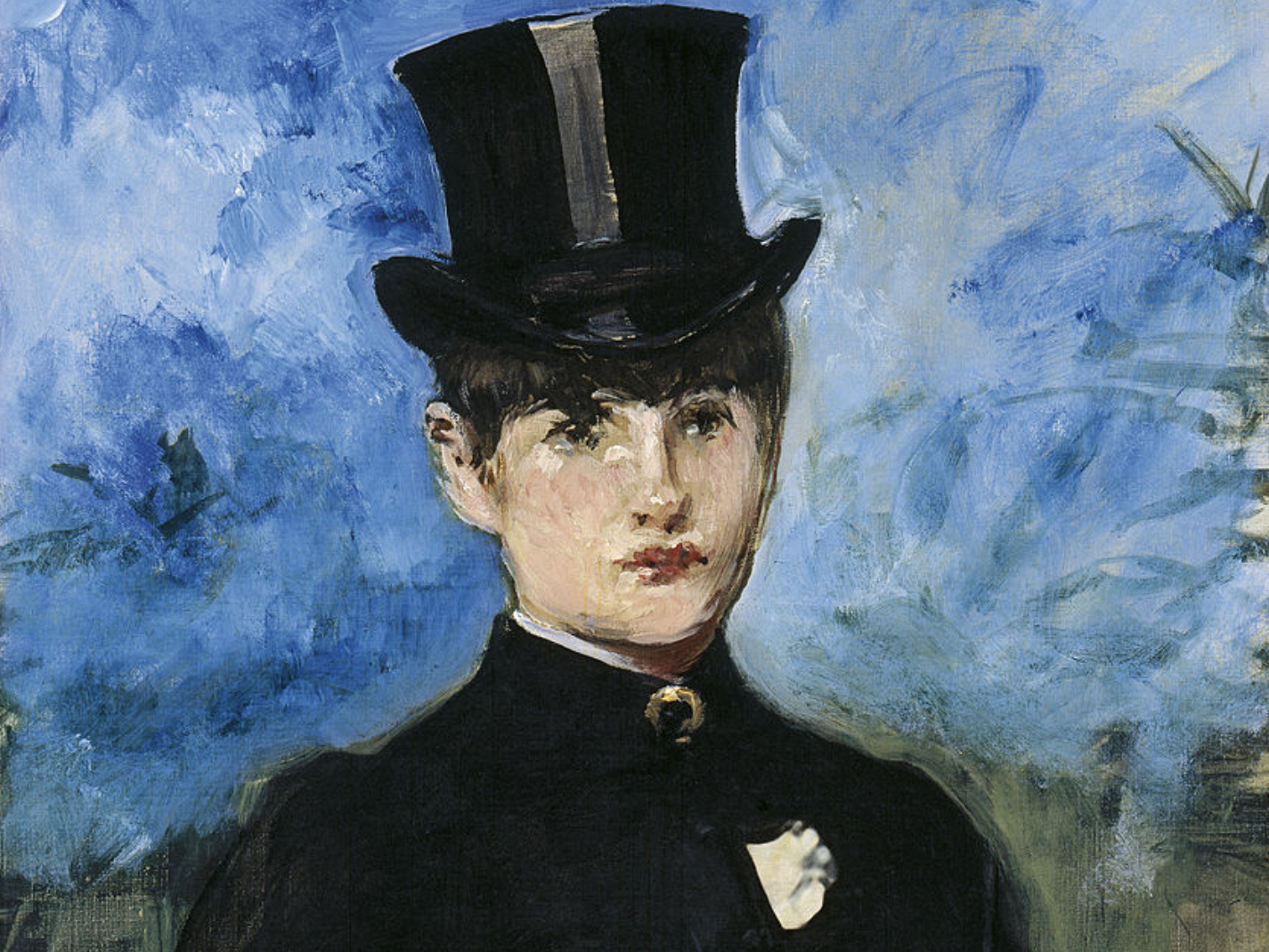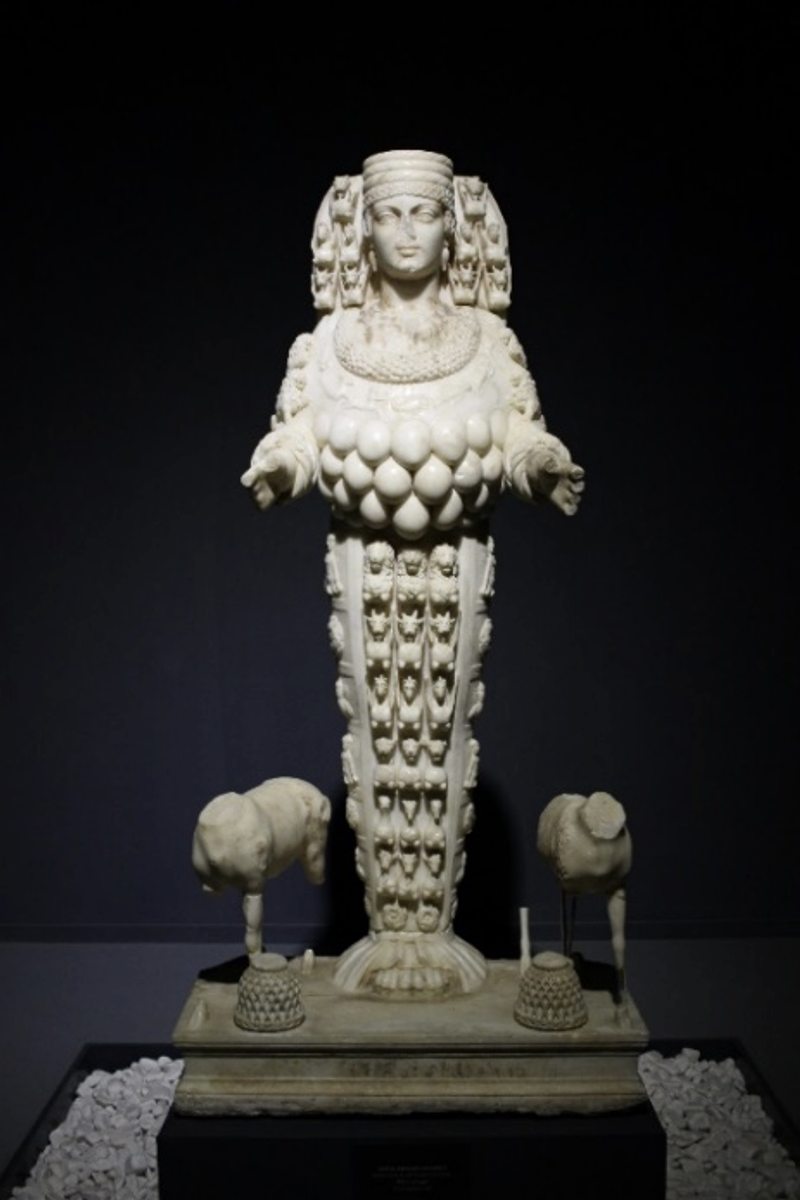
“Stopping first at Ephesus he made sacrifice to Artemis …”
—Thucydides, The Peloponnesian War (fifth century BC)
“You can check out any time you like, but you can never leave.”
—Eagles, “Hotel California” (1976)
America depends on and produces a large supply of freaks. This causes anxiety as well as comfort. Eric Hoffer—the “longshoreman philosopher” of San Francisco—expressed great admiration for such freaks in The True Believer (1951). He noted that these are the real drivers of American ingenuity. They’re also proximate to the heart and soul of every mass movement in this country. Indeed, the more liberated these mass movements become, the more freaks we find in our midst. Some of us have yet to discover that we ourselves are freaks.
Successful people are often freaks. In our country, a lot of regular folks get to be freaks too. This sociopolitical externality signals certain advantages. For example, we have the world’s most antifragile economy, which sustains a wide range of specialists, all of whom satisfy an ever-expanding circle of wants and needs. This means a lot of freaks find the means by which to survive in our society. We satisfy freaks. We put them to work. We reward them. We give them the independence we deserve. I’ve been called a freak. Have you?
Freaks are far more likely to take a risk, do something crazy, or have a wildly profitable idea. So, freaks are not just a byproduct of our system; they’re the essence of it. America’s productive freaks compound the effects of our adventurous minds in all areas of modern life. We’re freaks because we’ve internalized the frontier.
Given our freakishness, it’s no surprise that America is a more violent culture by Western standards. America is also more libertarian and more materialistic, and hence doomed to extraordinary levels of litigation. Sometimes, America is all four of these things at once. The fad of “gender-affirming” surgery superimposes the strife, freedom, profit, and frequent lawsuits that are the very cornerstones of our great nation.
In tying together the sociology of our violence, our philosophy of liberty, the genius of our free market, and the evolution of our legal system, we might consider attending to the history of the novel. In her book The True Story of the Novel (1996), Margaret Doody found that the greatest novels of classical antiquity, the Renaissance, and the Baroque are all governed by goddesses. Authors such as Heliodorus, Apuleius, Cervantes, Zayas, and Lafayette end their most important and influential texts with stylized feminine triumphs. Throughout the history of the genre, goddess characters such as Venus, Diana, Zoraida, Mary, and Isis summon devotees, drive plots, and perform climactic miracles.
I don’t know about you, but when I think of goddesses, I sometimes think about breasts. This mammalian and rather male instinct makes it unsettling to consider how far we’ve come in our evolution. Today we’re urged to confront our views about breasts. Are women tantamount to their breasts? When we think of women, do we think of their breasts, or should we honestly try never to think of breasts when we think of women?

Artemis of Ephesus, second century AD
I invite readers to join me somewhere in the middle on this issue. Many of us are pressed narrowly between these two polarized views on breasts. We are forced to affirm one of them over against the other. In response to whether or not the essence of a woman is her breasts, if I say, “maybe a little,” it seems that neither of those breasts nor their woman are in any real danger, especially if I qualify that I don’t consider the relation constitutive. I hope thus to remain in the middle regarding any particular woman’s breasts. As a general matter, however, I cannot claim neutrality on breasts. Being a conservative involves a growing awareness that many things in life were in fact better in the past. Breasts, or at least our attitudes toward them, might be a case in point.
[More from Eric Clifford Graf: “Federalism—Virtue or Structure?”]
Take the great huntress and fertility goddess known as Diana (Artemis in Greek). By sometime in the second century AD—during the era of the classical novel—she incarnated women as all-powerful sources of life. Women were worthy of their breasts. Artemis of Ephesus brings forth a bulging, bulbous basket of fulminating breasts, or else eggs or fruit of some sort. But whether she carries moonstones or lemons, Artemis is nothing if not nature in full bloom, and she goes unashamedly about her busty business. She consists of many breasts. Her breasts overwhelm her. Her breasts are her, and she is her breasts. Naturally, a great congress of little animals emerges from the cubbyholes that surround her. Even if Artemis’s wall of breasts is an affirmation of life, it is also extreme, and we understand how a modern woman might object. I wager a lot of otherwise primitive modern men would not recognize much in the ancient cult of Artemis.
Extreme. Also extreme is gender-affirming surgery performed by doctors who remove the breasts of women who have come to think they are men—something presumably unimaginable in ancient Ephesus. This might mean I’m patriarchal. I have similar reactions to women’s boxing and women’s martial arts. I also can’t watch women put on earrings and pluck their eyebrows. On the other hand, if surgeons are finding this kind of work, then I might not be the problem. Many of these patients are reportedly groomed in high school by psychologists who prescribe hormone-blocking drugs until they are old enough to remove their breasts. This makes me long for the cascading boobies of the great Mediterranean earth goddesses of antiquity.

Gender-affirming surgeon with patients
But we should expect this from American women, right? We can respect breast removals without approving of them. As with all other categories of human beings in America, our Amazons go all the way. They affirm twice over that they are not females. Every sense of self today has spawned some industry, surgery, device, drug, movie genre, toy, cereal, or live-streaming channel. Breast-removal feminism is a contradiction, but it’s what you should expect in a hyper-democracy. If Americans are nothing else, we’re the essence of excess. We’ll do more of whatever is on tap, and we’ll do it in ways more extreme than others can possibly imagine.
All societies have Amazonian spaces: convents, hospital wards, clubs for the daughters of revolutions or civil wars, women’s sports, huntresses’ lodges, groups of housewives, gatherers of the corn, the neighborhood’s young mothers, lesbian voters’ leagues, and (my personal favorite) women’s roller derby. While it’s not their only function, such associations allow women to opt out of everyday interactions with men. This can mean simple respite from the status quo (a women’s bowling night) or a permanent and powerful institution (the Congressional Caucus for Women’s Issues). There are all sorts of socio-evolutionary explanations for this. The very survival of the tribe once depended on it. The seasonal evacuation of men, for example, can make tasks related to the harvest less dangerous and more efficient.
Democracy in America (1835/40) is delightful due to Alexis de Tocqueville’s inclination to speculate in the extreme. How extreme? He sometimes insults and praises in the very same paragraph entire categories of readers. Tocqueville flatters and offends, for example, when he considers the ways in which the American sociopolitical system affects women.
The role of women emerges gradually in Democracy in America. Tocqueville notes that Americans see women as the custodians of male authority: “they believe that, in the smaller association of husband and wife, just as in the greater political community, the objective of democracy is to regulate and authenticate the powers that are necessary, not to destroy all power.” Given the Frenchman’s preference for asymmetrical political representation, this is a profound turn of phrase. He likens women to senators or justices. A weaker branch of power, they still require consultation, and they can still block the unruly initiatives of the common man.
[More from Eric Clifford Graf: “Reforming the Humanities in Florida”]
Tocqueville marvels at how the frontier reimposes respect for women: “Americans constantly display their complete confidence in the understanding of their wives and have a deep respect for their freedom. They estimate her mind is as capable as a man’s of discovering the plain truth and that her heart is just as resolute in following it.” But there’s more at work here. His attention to a woman’s mind closely echoes his earlier affirmations of the intelligence of blacks: “Primitive Africans have acquired in slavery the enlightenment of a civilized country and have learned the art of freedom.” Around the middle of the nineteenth century, the movements for women’s rights and abolition flowed together in defense of unjustly abused groups of people. Thus, in the first volume of Democracy in America, Tocqueville locates women as the moral gatekeepers of decisions regarding religion and slavery (see DA 1.2.9–10).
However, Tocqueville also notes that submitting to women is not ipso facto respecting them: “It seems that in Europe, where men so easily submit to the tyrannical sway of women, the latter are nevertheless denied some of the greatest qualities of the human race and are regarded as attractive but incomplete beings.” As civilization advances, it somehow excises the incentive to respect women as true partners in life. Likewise, Shelby Steele indicated in his book White Guilt (2006) that advocacy for blacks is not always respectful. It can establish a low bar of expectations and signal paternalistic contempt, and it can disincentivize blacks, thereby perpetuating poverty, ignorance, and conflict.
By contrast, avoiding pure equality between the sexes can express mutual respect: “Americans do not believe that men and women have the duty or the right to perform the same things but they show the same regard for the role played by both and they consider them as equal in worth although their lot in life is different.” Women’s right to be different indicates their great value, and this paradoxically triggers men’s unwillingness to submit to them. But this empowers women because they’re viewed as more complete beings who must be reckoned with. It’s a subtle and compounding dynamic, but it signals the persistence of female autonomy.
As he does regarding most topics, Tocqueville notes a strange aspect of male–female relations that still lingers today. Our progressive Californians echo the cosmopolitan Europeans of Tocqueville’s day: “There are Europeans who confuse the various characteristics of the sexes and would make of men and women beings not only equal but alike. To both, they attribute the same functions equally, impose on them the same duties and grant them the same rights. They would involve them both in everything—work, pleasure, business. It is easy to see that, in this ambition to make the one sex equal to the other, both are demeaned and that, from this crude mixing of nature’s works, will emerge weak men and immodest women.”
I would urge the most radical women in America to attend to the greatest political theorist of modern democracy. Tocqueville sensed that both women and slaves would be liberated—much as Alexander Hamilton implied in Federalist 83—but to his tremendous credit, the French count saw that this would cost us. Gender-affirming mastectomies are a good mnemonic for the way his sociology grimly explores the darker consequences of American liberty. Melancholy haunts Democracy in America. It approximates the aesthetic sensibilities of Dante and Edgar Allan Poe in the sense that Tocqueville can leave no shade unexplored.
And what shade is this? A Venezuelan friend of mine claims to have experienced a future in which tyrants can rule a country for decades thanks to their easy access to enormous wealth lying just beneath the surface. Something similar is happening in California. Instead of oil and gas reserves, Californians sit atop the world’s greatest technology companies. There’s no turning back from the future, but have not some of Californians’ social innovations reached the limits of their bounty? Could it be that America respects the freedom of women so much that some of us can now afford to take them for granted? And does not the removal of her breasts to affirm her right to be a man mean that a woman is nothing but her breasts?
Image: Édouard Manet, The Amazon (c.1882), Wikimedia Commons, Public Domain
Interesting gestalt, and a telling one at that. I had thought the sniggering mostly self-directed. I find the subject matter quite disturbing; it admittedly reduces me to an infantile state of squeamishness. I see no reason to ignore that or repress it. Is not the freedom to be whatever one thinks one is the whole point of the surgery? Maybe not. Maybe it’s a kind of tyranny that becomes self-mutilating because it can’t find anyone to punch out. Suicide, after all, is an aggressive act. I give; I yield. If you read more carefully, you will notice that I return from humor to respect for the motives and the suffering. Amazons only removed one breast. I thought it convenient to establish a bipolarity in this case. I estimate you would only have to excise one paragraph to be happy with the piece. I wish there were something I could do to help. Most of us have been lost at some point in our lives. I fear, however, that the sociology and psychology of this is way out of anyone’s control, at least in CA. It’s a cult. And cults are not happy things. If we cannot laugh our way out, I doubt it ends well. Yours in the struggle, E.
Sniggering jokes about being squeezed between boobies. didn’t NAS say something something about respecting its audience and blah blah dignity in its membership materials? I must have missed the “not counting girls, who of course have cooties” clause.
Entirely disagree with Kathleen Lowrey’s humorless and sneering comment about Graf’s stimulating and challenging column. Would that all academics had Graf’s range and imaginative vision. Clearly the likes of Lowrey wish to cancel anyone who does not fall into the standard opposing ideological blocks, and anyone not clearly on the “right side.”
A man who knows tribes all too well!